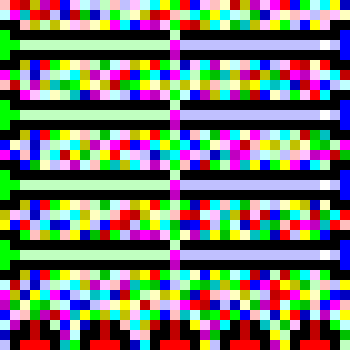Pick a quote or phrase that is exactly 5 words long, such as Programming puzzles and code golf!.
Write a program that, when appended to itself n times, outputs the first n + 1 words of your phrase in order.
For example, if your program code was MYPROG and your phrase was Programming puzzles and code golf!, running...
MYPROGshould outputProgrammingMYPROGMYPROGshould outputProgramming puzzlesMYPROGMYPROGMYPROGshould outputProgramming puzzles andMYPROGMYPROGMYPROGMYPROGshould outputProgramming puzzles and codeMYPROGMYPROGMYPROGMYPROGMYPROGshould outputProgramming puzzles and code golf!
Appending more than 4 times is undefined, your program may do anything.
Rules
- Your phrase must be grammatical meaningful English. Ideally it should be properly capitalized and punctuated.
- Your phrase may be any length but its entropy, as calculated by http://www.shannonentropy.netmark.pl/, may not be less than 3.5.
(Paste in your phrase, hit Calculate and look for the last H(X).) - Your phrase can only contain printable ASCII characters (hex 20 to 7E). Your code can only contain printable ASCII and tabs and newlines.
- Your phrase must contain exactly 5 unique words and 4 spaces. All non-spaces count as parts of words. Spaces are the word boundaries. They may not be leading or trailing; there should be one after all but the last word.
- The output should contain one space between words as well. The output at each appending step may contain trailing spaces but not leading spaces.
- Output to stdout. There is no input.
Scoring
Your score is the length in bytes of your initial un-appended program. (e.g. MYPROG scores 6)
As this is code-golf, the lowest score wins.






